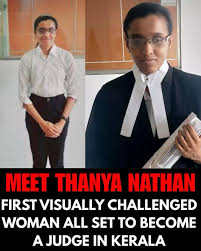Dr. G. Yethirajulu, J.@mdashThis Revision Case is filed against the Order of the learned Magistrate dated 13.12.2005 in Crl.M.P. No.3249 of 2005 in C.C. No. 100 of 2004,on the file of the Judicial Magistrate of First Class, S.Kota. An application was filed u/s 138 of the Negotiable Instruments Act (for short ''the Act'') by the petitioner to discharge him, on the ground that the procedure prescribed u/s 200 Cr.P.C.. is not - followed by the learned Magistrate while taking cognizance of the offence. Therefore, he is entitled for discharge and further proceedings shall not be conducted. The learned Magistrate, after hearing both parties, dismissed the application by observing that "the respondent gave the affidavit on oath, basing on the affidavit, complaint was taken on file, the petitioner did not raise the said objection at the first instance and he raised the said objection when the matter is coming up for defence evidence. The petition is filed at the fag end of the case. In the result petition is dismissed."
2. Learned counsel for the petitioner submitted that as per Section 200 Cr.P.C, the sworn statement of the complainant and the witnesses and such other witnesses present shall be recorded before taking cognizance of the offence and as the learned Magistrate failed to follow the procedure, the court shall not take cognizance of the offence. Therefore, he is liable to be discharged.
Section 200 Cr.P.C. reads as follows:
Examination of complainant:- A Magistrate taking cognizance of an offence on complaint shall examine upon oath the complainant and the witnesses present, if any, and the substance of such examination shall be reduced to writing and shall be signed by the complainant and the witnesses, and also by the Magistrate :
Provided that, when the complaint is made in writing, the Magistrate need not examine the complainant and the witnesses, -
(a) if a public servant acting or purporting to act in the discharge of his official duties or a Court has made the complaint; or
(b) if the Magistrate makes over the case for inquiry or trial to another Magistrate u/s 192:
Provided further that if the Magistrate makes over the case to another Magistrate u/s 192 and examining the complainant and the witnesses, the later Magistrate need not re-examine them.
3. I requested the learned senior counsel Sri Padmanabha Reddy to assist the Court and the senior counsel submitted that Section 145 of the Act made it very clear that evidence can be adduced on the affidavit and there is no necessity to record the sworn statement of the complainant as the amendment to the Section was introduced for expeditious disposal of the cases filed u/s 138 of the Act.
Section 145 of the Act reads as follows :
Evidence on affidavit: (1) Notwithstanding anything contained in the Code of Criminal Procedure, 1973 (2 of 1974), the evidence of the complainant may be given by him on affidavit and may, subject to all just exceptions be read in evidence in any enquiry, trial or other proceeding under the said Code.
(2) The Court may, if it thinks fit, and shall, on the application of the prosecution or the accused, summon and examine any person giving evidence on affidavit as to the facts contained therein.
4. The learned counsel also drew the attention of this Court to a Karnataka Judgment in
Because of the non-obstante clause in the section, despite of any provision in the Cr.P.C. to the contrary the evidence of a complainant can also be given on affidavit in any enquiry, trial or other proceeding of Cr.P.C. The word "proceeding" is a term of wide amplitude, which includes procedural steps to be taken in Cr.P.C. Accordingly initial statement u/s 200 Cr.P.C. which is a procedural step, can be given on affidavit. The impugned order suffers from glaring procedural defect and as such deserves to be set aside.
5. Affidavit can be used as evidence, if law specifically permits. Since Section 145 of the Act permits filing of the affidavit, the Magistrate was right in accepting the same and taking cognizance of the offence, but the learned Magistrate in the impugned order did not mention that u/s 145 of the Act the filing of affidavit is permitted, due, to that a doubt has arisen in the mind of the petitioner, therefore, he approached this Court. In the light of the view expressed by the Karnataka and Orissa High Courts and in view of the amendment made to Section 145 of the Act, the filing of affidavit is permissible under law and the learned Magistrate was right in relying on the affidavit and taking cognizance of the offence u/s 138 of the Act. There are no grounds to interfere with the order of the learned Magistrate.
6. The revision case is accordingly dismissed.

